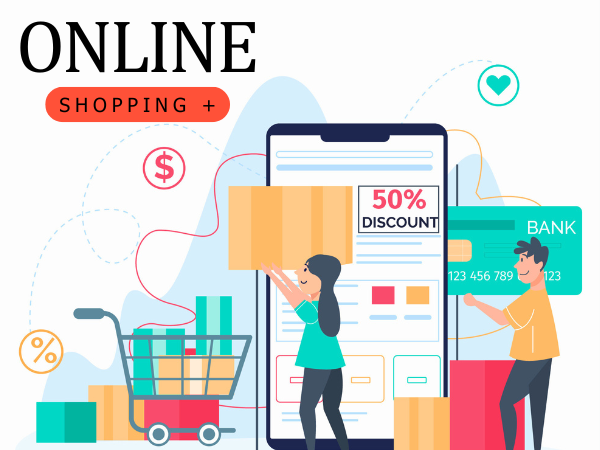In today’s digital age, our dependence on mobile devices has reached unprecedented levels. On average, a person checks their phone a staggering 144 times a day, with 90% reaching for their devices immediately upon waking. This increasing reliance on mobile technology opens up immense opportunities for e-commerce businesses, especially as smartphones become the primary tool for online shopping.
By 2028, global smartphone ownership is projected to reach 7.7 billion, indicating that a significant portion of online traffic will continue to come from mobile devices. Mobile phones offer a personalized and convenient shopping experience, enabling consumers to engage with brands anytime, anywhere.
E-commerce and Instant Gratification
In a fast-paced world where people expect immediate results, mobile apps have become essential for e-commerce. The convenience of shopping via an app provides instant gratification—users can browse, compare, and purchase items without leaving their homes, bypassing the hassles of physical shopping like long queues and limited store hours.
For instance, when I needed a smaller trolley bag for a two-day trip, I opted to order through an e-commerce platform rather than rush to a store. Within two days, the bag was delivered to my doorstep. This swift response perfectly illustrates how mobile e-commerce caters to the modern consumer’s need for speed and convenience.
Anytime, Anywhere Shopping
Mobile e-commerce brings the shopping experience to the palm of your hand, allowing customers to make informed decisions by comparing even the smallest details between products. Apps also save time by analysing browsing history and suggesting products tailored to individual preferences. This personalized approach, combined with hassle-free, secure payment options, ensures a seamless shopping experience.
For example, when I was too busy to collect medicine available only at a hospital pharmacy, an e-commerce delivery service came to my rescue. They picked up the medicine and delivered it directly to my mother on time. The convenience of e-commerce apps in addressing urgent needs, anytime and anywhere, is one of the greatest advantages of mobile shopping.
Data-Driven Marketing and Personalization
Mobile apps play a crucial role in optimizing marketing efforts. By collecting valuable data on user behaviour, preferences, and interactions, businesses can tailor promotions and marketing campaigns to meet the specific needs of their customers. This data-driven approach helps companies stay ahead of the competition and fosters growth by turning potential leads into loyal customers.
I experienced this firsthand when I ordered a clothing item online, and the site suggested the most suitable size based on my previous purchases. This level of personalization, where technology remembers and understands our past behaviors, makes the shopping experience more satisfying and efficient.
Challenges in Developing E-commerce Mobile Apps
While mobile apps offer incredible convenience, they also present challenges, particularly concerning data protection. Many e-commerce platforms are not entirely foolproof when it comes to safeguarding personal information. For instance, I used to receive unsolicited calls from real estate companies right after my salary was credited, and banks would contact me during times of low account balances. These promotional calls can be incredibly disruptive, especially when one is busy or focused on other important tasks. Such incidents highlight the gaps in how personal data is managed by some e-commerce platforms.
Prioritizing App Security
Another challenge is the risk of making payment errors while using online payment apps. If we are not extremely careful, it is all too easy to accidentally send money to the wrong person. I once forwarded money to a friend in a hurry, but because I hadn’t double-checked, the amount was credited to a previous recipient. Experiences like these remind us that while mobile e-commerce can be convenient, it also requires vigilance on the part of users, especially when handling financial transactions.
Mobile Apps as Growth Drivers
In summary, mobile apps are powerful growth drivers for e-commerce businesses. The convenience they offer leads to higher conversion rates and a stronger brand image, helping companies maintain a competitive edge. However, developers must address challenges such as selecting the right technology and prioritizing app security to ensure long-term success.
As the future of e-commerce continues to evolve, mobile apps will remain at the forefront, providing businesses with unparalleled opportunities to engage with their customers and drive growth.
Mr. Sony Thomas
Head of School, Cambridge International.
CS Academy, Coimbatore


